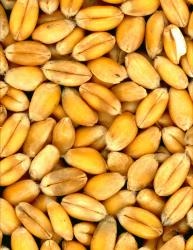If you’re trying to conceive, in addition to taking good care of your body, you can also incorporate doctor-recommended fertility foods into your daily diet. It’s especially important to pay attention to your diet when trying to conceive. The following are 7 foods recommended by doctors for fertility.
Plant-Based Protein
While protein is important in your daily diet, are you consuming too much animal protein? The Harvard School of Public Health suggests that simply replacing one serving of animal protein with plant protein daily—for example, replacing meat with tofu—can help you conceive.
Their research showed that women who consumed more plant protein had a 39% higher chance of pregnancy compared to those who consumed more animal protein.
Whole-Fat Dairy
Scientific studies have shown that women who consume at least one serving of whole milk, yogurt, or cheese daily are less likely to suffer from ovulatory infertility. However, low-fat dairy products can have the opposite effect.
This means they may increase the risk of ovulatory infertility. While scientists haven’t yet determined why low-fat dairy products might have this adverse effect, they speculate that it’s because the reduced fat content of dairy products affects hormones.
Foods Rich in Iron
During pregnancy preparation, it’s important to consume more iron. After pregnancy, iron is usually absorbed by the baby, leading to the risk of postpartum anemia. Therefore, doctors recommend consuming iron-rich foods during pregnancy preparation.
This is especially true for plant-based foods like beans and vegetables, as well as animal-based foods like liver and lean meats, which are high in iron. Consult your doctor about taking iron supplements.
Grains
Folic acid is essential for fertility, and consuming grains can help increase your body’s folate levels. Folic acid, also known as vitamin B9, is a vitamin that helps the body produce more new cells.
Doctors recommend consuming more foods rich in folic acid when planning to conceive. In fact, you should continue taking folic acid supplements during pregnancy to help reduce the risk of brain and spinal defects in your baby.
Vegetables and fruits of various colors
Vegetables and fruits of various colors, including pumpkin, taro, kale, and bell peppers, provide the body with a natural source of multivitamins and antioxidants that fight free radicals.
In addition, vegetables and fruits of different colors contain phytonutrients, which are naturally occurring compounds in plants and powerful antioxidants that help maintain good health and, therefore, increase the chances of conception.
Olive oil
Olive oil is rich in monounsaturated fatty acids, which can help increase insulin sensitivity and reduce inflammation in the body. Inflammation can affect ovulation, conception, and early embryonic development. When planning for pregnancy, it’s also important to limit foods containing trans fats.
Many baked, fried, and processed foods available in the market may contain trans fats, which can reduce insulin sensitivity and cause irregular ovulation.
Omega-3 fatty acid-rich fish
Salmon, mackerel, and saury are all good sources of omega-3 fatty acids. Compared to larger fish like tuna, these fish contain lower levels of mercury. While consuming them in large quantities is still not recommended, moderate consumption can help maintain normal reproductive hormone levels and increase the chances of conception.


Leave a Reply